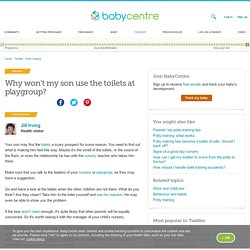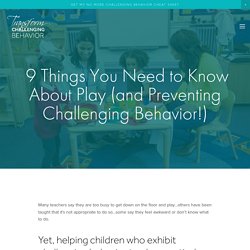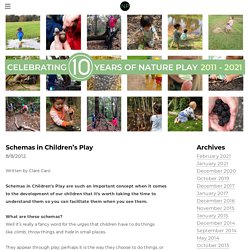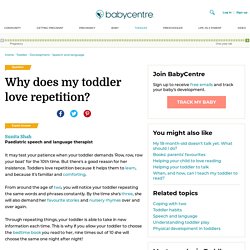

Only You, Your Doctor, and Many Others May Know. Ff2af5a184293feb8b5c4cdaf30d53694549. Don't Expect Toddlers To Behave Consistently — They Literally Can't. One day, when my oldest daughter was not quite 2, she wouldn’t sit still to let me change her diaper. Squirrelly and writhing, she made a game out of staying half naked. She wasn’t fussing about it or anything — in fact, she was giggling maniacally. The problem was that we were running late. Nothing I did seemed to faze her. I tried distracting her with a toy. It was just once, and it was barely even hard enough to register. Once I gathered my wits, it dawned on me that I was punishing my daughter simply for being a goofy, growing, learning, experimenting almost-2-year-old.
As soon as I accepted the fact that we were going to be late anyway, I pulled out my parenting toolbox and made getting her diaper and pants on into a silly game. How Are Happiness and Learning Connected? As teachers, we also know that when students' affective filters or defenses are sky high, fight or flight responses will be modus operandi. How Are Happiness and Learning Connected? Why won't my son use the toilets at playgroup? Your son may find the toilets a scary prospect for some reason.

You need to find out what is making him feel this way. Maybe it's the smell of the toilets, or the sound of the flush, or even the relationship he has with the nursery teacher who takes him there. Make sure that you talk to the leaders of your nursery or playgroup, as they may have a suggestion. Go and have a look at the toilets when the other children are not there. What do you think? If the loos aren't clean enough, it's quite likely that other parents will be equally concerned. Find out if there are enough carers at your child's nursery to supervise your child when he needs to go. Whole Child Development Is Undervalued. The question is how to make such an approach both systemic and sustainable. Whole Person. Ey-besd. Neurodiversity_TfS_online_conference. Play.
Play. 9 Things You Need to Know About Play (and Preventing Challenging Behavior!) — Challenging Behavior. Over and over again I’ve seen examples of intentional support for a child’s play result in language spurts, increased attention span, social skills, friendships formed, and dramatic reductions or the elimination of the challenging behavior…sometimes even when the behavior was occurring at other times of the day.

Curious? Read on… 1. Children need 45-60 consecutive minutes of play time per day. Play takes time. Schema and Fairies - Kathy Brodie Early Years Training. Schemas are one of those things that divide practitioners, like fairies at the bottom of the garden.

You either believe in them and are in absolute awe at how amazing they are, or you just don’t believe they exist. It’s really interesting when you discuss this with people and it’s extra exciting when a ‘non-believer’ suddenly says “That describes my key child exactly!!” But first of all, let’s explore what a schema is. Athey (2007) defines schema as ‘patterns of behaviour and thinking in children that exist underneath the surface feature of various contents, contexts and specific experience’ (page 5).
Schemas in Children’s Play. Written by Clare CaroSchemas in Children’s Play are such an important concept when it comes to the development of our children that it’s worth taking the time to understand them so you can facilitate them when you see them.What are these schemas?

Well it’s really a fancy word for the urges that children have to do things like climb, throw things and hide in small places. They appear through play; perhaps it is the way they choose to do things, or what they desperately need to do out of the blue! Bringing It All TogetherAfter looking at each schema individually to get to grips with what each 'urge' is all about we may already be able to recognise some of the different ways they can appear in your child.Rotation, Trajectory, Enveloping, Orientation, Positioning, Connection, Enclosure/Container, Transporting and Transformation are urges that show in all children starting as early as their first birthday, some times before.How Can Knowing About These Urges Help Us? Schemas in Children’s Play. Deconstructing Role Play – Provide the Resources, Step Back and Watch Children’s Learning Flourish.
Hospital, vet’s surgery, post office, travel agent – themed role play areas are often seen as a must for an early years setting. They are often meticulously prepared to be aesthetically pleasing, covered in laminated words and pictures with the aim of enticing children in. But this is where I encountered a problem: in these areas, children are expected to come together to play out adult scenarios that are consistent with these themes.
Yet how many children have visited a travel agent to book a holiday recently, or operated on a pet dog in a vet’s surgery? Symbolic play and language development. 1. Introduction 1.1. Choice page. The cognitive benefits of play: Effects on the learning brain. © 2008 - 2014, Gwen Dewar, Ph.D., all rights reserved Science supports many of our intuitions about the benefits of play. Playful behavior appears to have positive effects on the brain and on a child’s ability to learn. In fact, play may function as an important, if not crucial, mode for learning. Want specifics?
Here are some examples. Raisingchildren.net. Primary school shake-up to focus on ‘play-led’ learning. Children at primary schools would not study traditional subjects until as late as 10 years of age, under proposals being considered by policymakers. Instead, there would be a much greater emphasis on creative play during the early years of primary school, and broader areas of learning in later years. The reforms are based loosely on some of the features of top-performing education systems in countries such as Finland, as well as new research on how children learn.
The proposals, drafted by the National Council for Curriculum and Assessment (NCCA), represent some of the biggest proposed changes to teaching and learning at primary level in more than two decades. They also seek to give teachers more flexibility and autonomy over the amount of time dedicated to key areas of learning. Educators, policymakers and parents discussed the proposals at a conference in Dublin Castle on Tuesday as part of a consultation phase which continues until the end of April. Why Movement is Essential in Early Childhood.
With so few years under their belts, my 3- and 6-year-old daughters are still learning to inhabit their bodies. They are learning how to maneuver themselves physically, how to orient themselves in space. As Vanessa Durand, a pediatrician at St. Christopher’s Hospital for Children in Philadelphia, says, freedom of movement is necessary for children to meet their developmental milestones: “Children learn by experiencing their world using all of their senses. The restriction of movement, especially at a young age, impedes the experiential learning process.” Movement allows children to connect concepts to action and to learn through trial and error.
Play to Learn: Discussion. Play to Learn. Why play-based learning? (free article) - Early Childhood Australia. Taking Playtime Seriously. So part of encouraging play is pulling back on how much programmed goal-directed learning we expect from very young children, to leave them time for the fun of exploration, curiosity and, well, fun.
But another important part may be creating environments that foster children’s play and parents’ participation and attention. Dr. Hirsh-Pasek, who is a senior fellow at the Brookings Institution, cited its Learning Landscapes Initiative, which aims to set up learning opportunities in public places where people will encounter them. One of these, the Urban Thinkscape project in Philadelphia, involves puzzle benches at bus stops, with puzzles designed to build STEM skills. Before the benches were installed, she said, parents waiting for buses were almost uniformly looking at their cellphones. Dr_david_whitebread_-_the_importance_of_play.pdf. Importance of play for babies & children.
Australian Government Department of Education and Training (2009). Belonging, being and becoming: The early years learning framework for Australia. Canberra: Commonwealth of Australia. Retrieved 19 June 2019 from Cole-Hamilton, I. (2011). Getting it right for play: The power of play: An evidence base. The Power of Evening Routines. The word “structure” can evoke less than positive associations.
It suggests constraints, which are never a good thing, right? Wrong. It turns out that everyone benefits from a certain amount of daily structure, so long as that structure is pleasant, productive, and meaningful. Whether it’s the most inventive minds in history, or those people who live in good health past 100, a daily routine or set of micro-routines is correlated with productivity, health, and longevity. How do you speak 'Motherese'? How baby brains develop. Early childhood development – it’s not rocket science, it’s neuroscience! - Kathy Brodie Early Years Training. Deb Roy: The birth of a word. Listen to Your Mother.
Let's Talk. Why does my toddler love repetition? Paediatric speech and language therapist It may test your patience when your toddler demands 'Row, row, row your boat' for the 10th time.

But there's a good reason for her insistence. Toddlers love repetition because it helps them to learn, and because it's familiar and comforting. From around the age of two, you will notice your toddler repeating the same words and phrases constantly. By the time she's three, she will also demand her favourite stories and nursery rhymes over and over again. Through repeating things, your toddler is able to take in new information each time.
And she will love stories and nursery rhymes with repeated phrases, because she can join in. A small study has found that repetition of stories may help children to learn new words. After hearing her favourite book many times, your toddler may even remember it well enough to add the endings to some of the sentences. Repetition is also comforting for your toddler. Have fun singing nursery rhymes and songs. How can I help my child to start talking? (Video) How can I help my child to start talking? (Video) Multilingual Preschoolers. It’s amazing how young children learn to converse with others. They have to not only internalize grammar and vocabulary, but also develop an understanding of culture: how to take turns in a conversation, who to talk to, and how to narrate a story.
For dual language learners (DLLs) — children under the age of 5 with a home language other than English — that process can be complex. Multilingual Preschoolers.